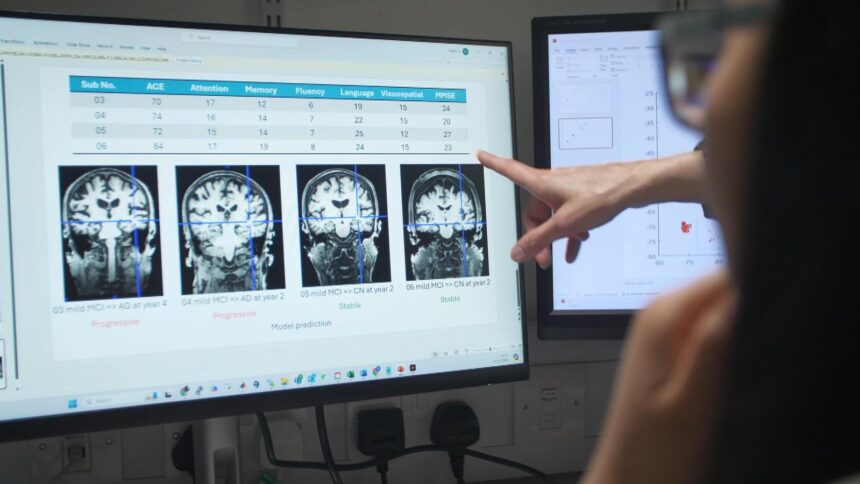With the use of this instrument, those who are at risk could alter their lives or begin novel medication treatments when they are most effective.
Additionally, it would stop those with cognitive issues that are probably the result of other illnesses like anxiety and depression from receiving incorrect care.
Researchers at the University of Cambridge analyzed MRI brain scans and cognitive tests from 1,500 patients in Singapore, the United States, and the United Kingdom using an artificially intelligent algorithm.
Over the next three years, it was able to differentiate between those who would develop Alzheimer’s disease and those who had modest mental agility issues that would stabilize.
According to a research published in the journal eClinicalMedicine, the tool’s prognosis for identifying patients likely to develop the disease was more than 80% accurate, which is three times better than current clinical approaches.
The study’s principal author, Professor Zoe Kourtzi, claimed that the AI tool could also forecast whether a patient’s symptoms would worsen gradually or more quickly.







